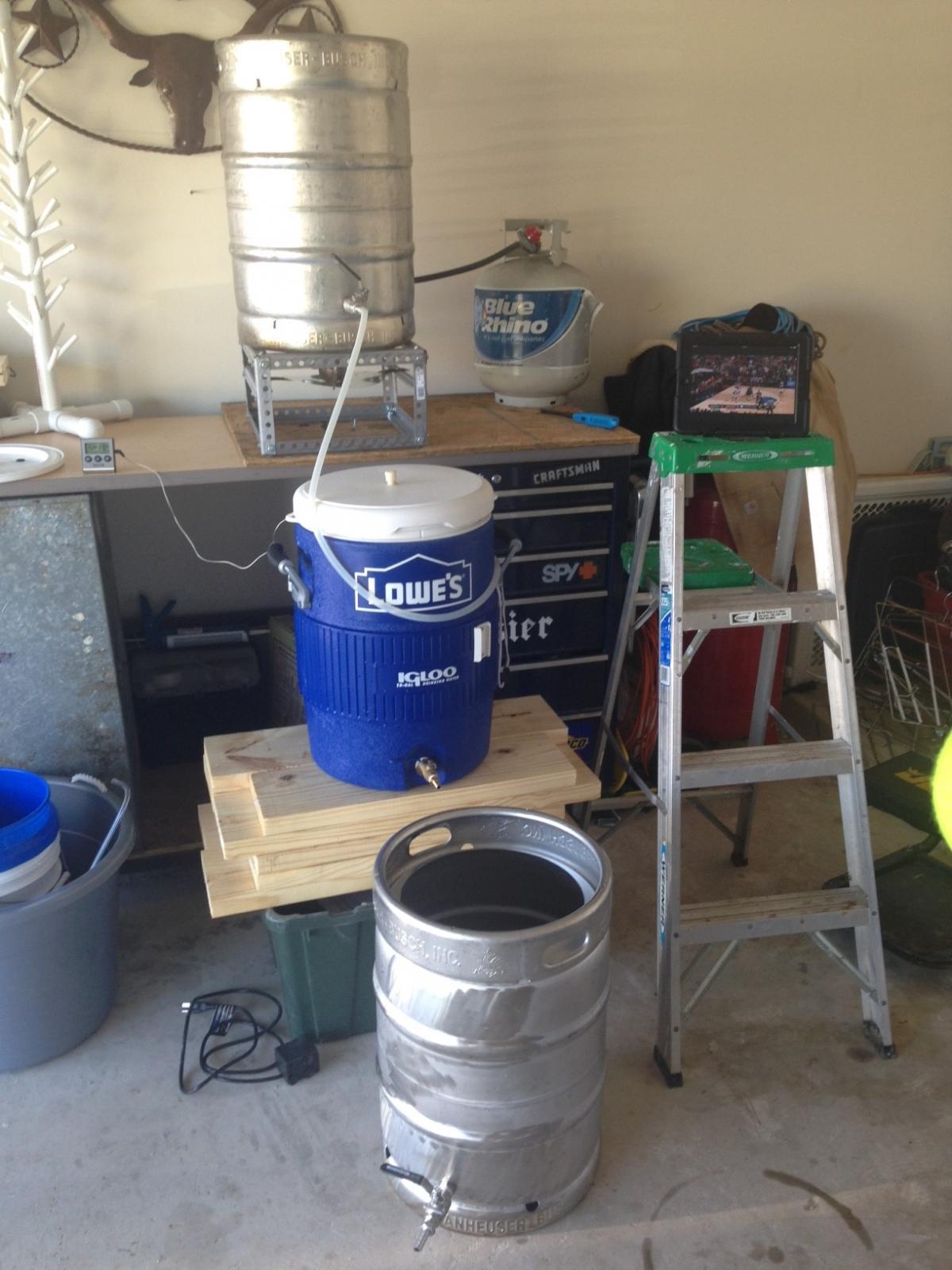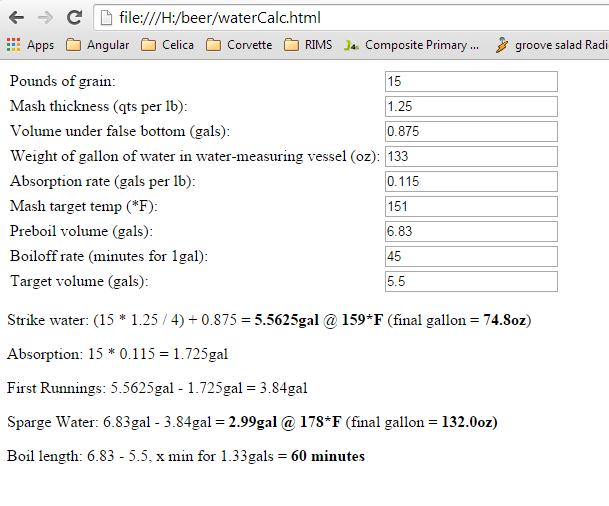I have brewed about 6 batches of beer so far, and the efficiency has progressively gotten worse. I started with Extract for the first couple and the last 4 have been all grain. I know use a keg for my HLT and Boil kettle and then the Igloo for the MLT.
My last batch I was doing a 90 Min IPA. I started with 8.5 Gallons of water in my HLT (1.5 Gal is below the nozzle level) 7 usable gallons. By the time the wort hit the boil kettle I had roughly 4 Gallons and after a 90 Min boil I ended up with 2 gallons...
With that being said my OG was 1.050 and my target was 1.063. I figured since I ended up with 3 gallons less and I wanted the OG would have been much higher. I use beersmith2 but at times it can be a little over my head when trying to input some of the data for my rig...
How much water do you start with when brewing a 5 gallon batch? 90 min vs 60 min boil? I added a picture of my setup. I am open to any advice, I may brew again on Sun. Thanks

My last batch I was doing a 90 Min IPA. I started with 8.5 Gallons of water in my HLT (1.5 Gal is below the nozzle level) 7 usable gallons. By the time the wort hit the boil kettle I had roughly 4 Gallons and after a 90 Min boil I ended up with 2 gallons...
With that being said my OG was 1.050 and my target was 1.063. I figured since I ended up with 3 gallons less and I wanted the OG would have been much higher. I use beersmith2 but at times it can be a little over my head when trying to input some of the data for my rig...
How much water do you start with when brewing a 5 gallon batch? 90 min vs 60 min boil? I added a picture of my setup. I am open to any advice, I may brew again on Sun. Thanks


















![Craft A Brew - Safale S-04 Dry Yeast - Fermentis - English Ale Dry Yeast - For English and American Ales and Hard Apple Ciders - Ingredients for Home Brewing - Beer Making Supplies - [1 Pack]](https://m.media-amazon.com/images/I/41fVGNh6JfL._SL500_.jpg)








































